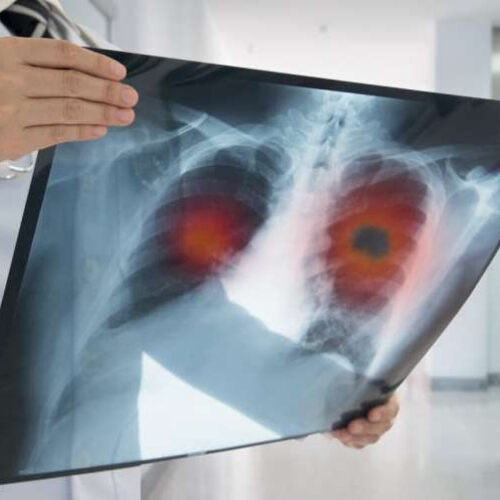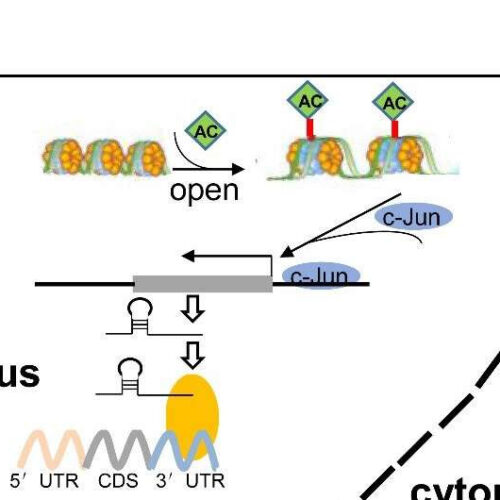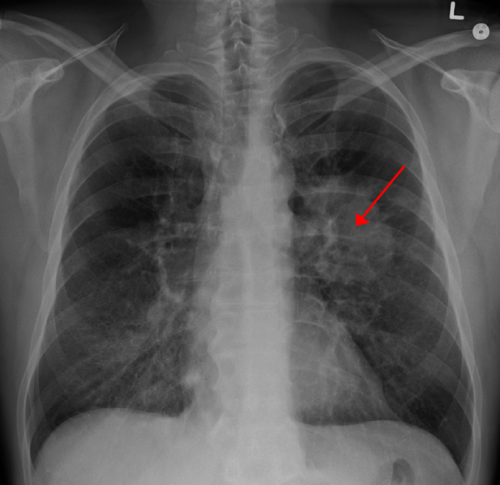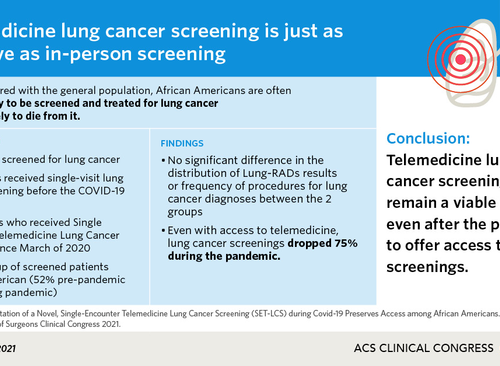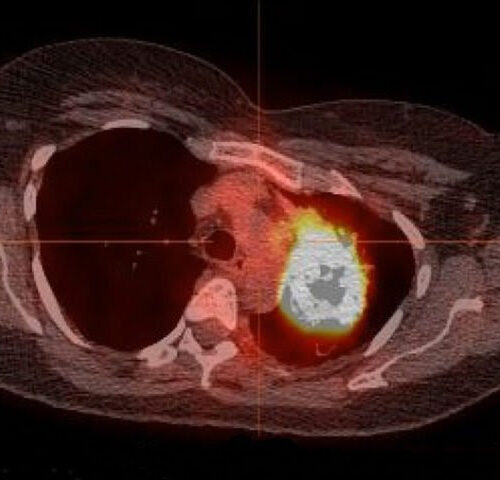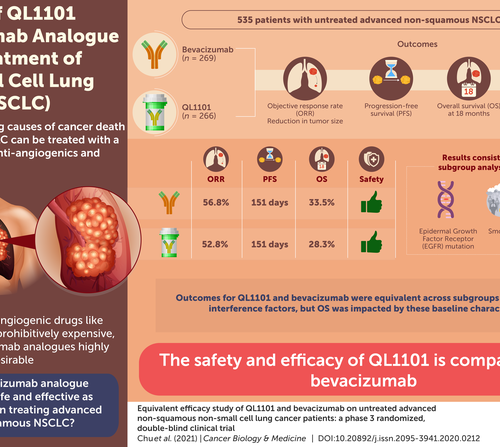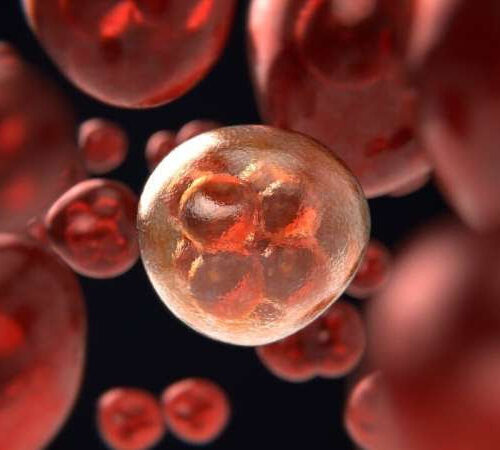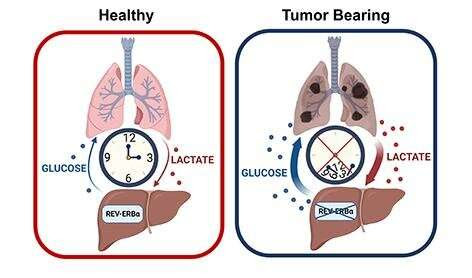by American Thoracic Society Most patients at high risk failed to do lung cancer screening follow-up. Credit: ATS The first study to look at follow-up for patients deemed at high risk for lung cancer after CT screening found that 47 percent delayed follow-up care, according to research published at the ATS 2022 international conference. “The...
Tag: <span>Lung cancer</span>
Scientists find potential diagnostic and therapeutic target for lung cancer
JANUARY 17, 2022 by Chinese Academy of Sciences Proposed model for the LCDR/hnRNP K/LAPTM5 axis promoting the pathogenesis of lung cancer. Credit: Gao Shan Chinese scientists recently reported the key role in tumor survival played by a histone-acetylation-regulated long noncoding RNA called lysosome cell death regulator (LCDR), providing a potential diagnostic and therapeutic target for lung...
Blood test helps predict who may benefit from lung cancer screening
UNIVERSITY OF TEXAS M. D. ANDERSON CANCER CENTER HOUSTON ― A blood test, combined with a risk model based on an individual’s history, more accurately determines who is likely to benefit from lung cancer screening than the current U.S. recommendation, according to a study published today in the Journal of Clinical Oncology led by researchers...
Early-stage lung cancer may soon be detectable from a drop of blood
by Massachusetts General Hospital Lung CA seen on CXR. Credit: James Heilman, MD/Wikipedia Lung cancer, the leading cause of cancer death, is usually diagnosed at a late stage when the survival rate is extremely low. Early-stage lung cancer is mostly asymptomatic, and low-dose spiral CT imaging, the current method for detecting early lung cancer lesions, isn’t...
Virtual lung cancer screening is just as effective as in-person screening
AMERICAN COLLEGE OF SURGEONS IMAGE: IMPLEMENTATION OF A NOVEL, SINGLE-ENCOUNTER TELEMEDICINE LUNG CANCER SCREENING (SET-LCS) DURING COVID-19 PRESERVES ACCESS AMONG AFRICAN AMERICANS. CREDIT: AMERICAN COLLEGE OF SURGEONS Key takeaways Telemedicine screening preserved access to lung cancer screening during the COVID-19 pandemic for a safety net hospital’s large African American patient population. Despite the opportunity to...
Most cases of never-smokers’ lung cancer treatable with mutation-targeting drugs
Despite smoking’s well-known role in causing lung cancer, a significant number of patients who develop lung tumors have never smoked. While scientists are still working to understand what spurs cancer in so-called “never-smokers,” a study led by scientists at Washington University School of Medicine in St. Louis demonstrates new possibilities for treating these baffling tumors....
A cost-effective anti-angiogenic drug to treat lung cancer is finally here
New research shows that the QL1101, structurally similar to an existing cancer drug, is a safe and effective alternative for lung cancer treatment. In 2018, lung cancer caused 1.8 million cancer deaths worldwide. It is the most common type of cancer, with non-small cell lung cancers (NSCLCs) accounting for 85% of lung cancers. Most recent lung cancer research focuses...
Potential marker for success of immunotherapy in the treatment of lung cancer
MEDICAL UNIVERSITY OF VIENNA Lung cancer has the highest mortality rate of all cancers, and treatment options are extremely limited, especially for patients with oncogenic mutations in the KRAS gene. A great deal of hope was invested in the licensing of immune checkpoint inhibitors, but the reality is that some patients respond very well to...
Study suggests patients with lung cancer be screened for MET oncogene
by Joe Dangor, Mayo Clinic Credit: Pixabay/CC0 Public Domain Research by investigators at Mayo Clinic Cancer Center suggests that physicians should screen patients with lung cancer for MET amplification/overexpression before determining a treatment strategy. Their findings are published in Cancer Discovery, a journal of the American Association for Cancer Research. “In our research, we found several...
Loss of circadian regulation allows for increase in glucose production during lung cancer
by University of California, Irvine During lung cancer progression and the corresponding development of cachexia, circadian control of glucose production is disrupted, resulting in increased levels of glucose from the liver. These findings illustrate tissue-tissue crosstalk whereby a lung tumor can disrupt the circadian metabolism of a distal tissue, potentially for its own growth advantage. Credit:...

